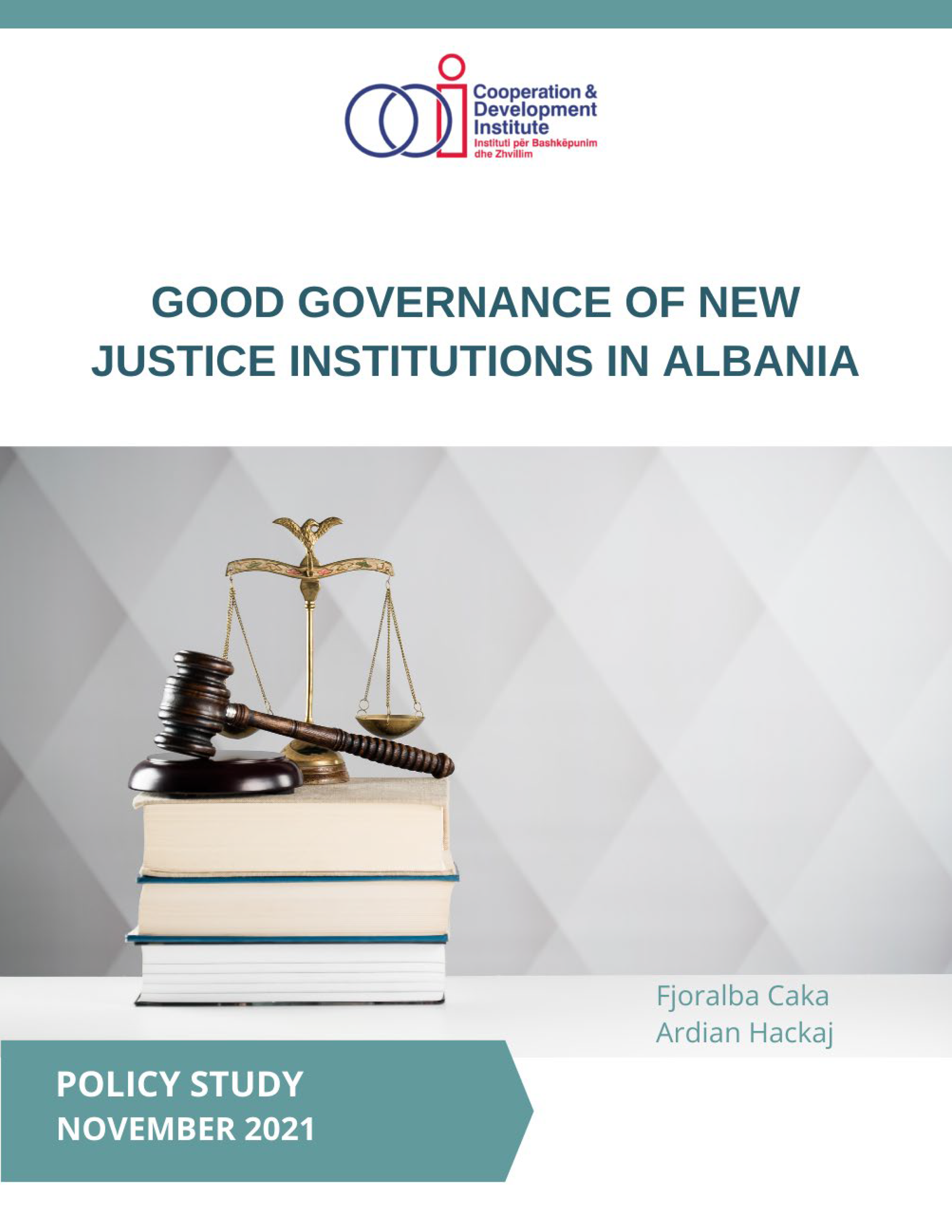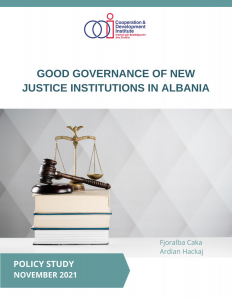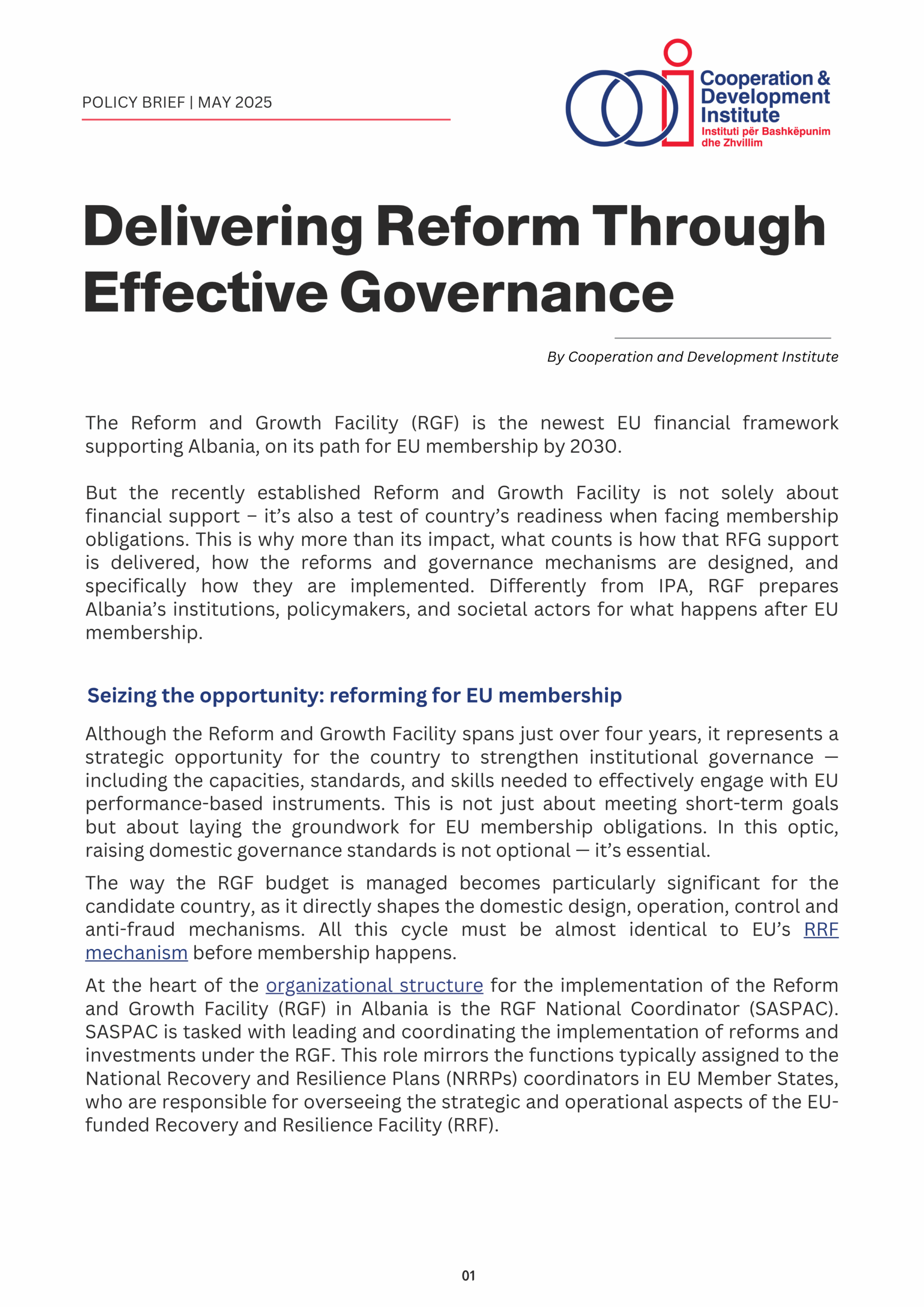Good governance of New Justice Institutions in Albania

B2B Meeting on “Commercial and regulatory aspects of photovoltaic for self-consumption in Albania”
November 23, 2021
B2B meeting session on “Maximizing the value of the real estate through the Certificate of Energy Performance (CPE)”
November 30, 2021The outcomes of Justice Reform in Albania until now can be resumed in two main components: i) the ongoing vetting process and, ii) the establishment and operationalization of new justice institutions. Under international monitoring, the new institutions have been designed and set up to resist capture, are manned by vetted individuals, and are structurally independent from interest groups. After securing their legitimacy vis a vis the expectancies of the Albanian citizen and of EU partners, and completing the phase of set up, the next objective is to establish good governance mechanisms, implement solid internal processes, and deliver the expected outcomes. Faulty functioning of the new justice structures will damage both the legitimacy of the whole reform as well as the quality of their deliverables. Having amended more than 1/3rd of its Constitution, Albania finds itself as a Reform Frontrunner when compared with other SEE6 EU candidate countries. As a consequence, an important part of the EU foreign policy instruments of political dialogue, conditionality and assistance applied to the Balkan country must be re-oriented and redesigned to focus on the good governance and resilience of new justice institutions. Moreover, the lessons learned during design and implementation of the Albanian justice reform can be applied in other sectors as well as in the other Balkan countries.
This policy study follows the previous study “EU ENLARGEMENT IN SEE6 AND COUNTRY REFORMS: THE JUSTICE REFORM IN ALBANIA AS A CASE STUDY” and SECURING THE RESILIENCE OF JUSTICE SECTOR REFORM IN ALBANIA
*This policy study is prepared and published in the framework of the project “Preparing and Supporting Albania for the EU Accession Process – ALBE”, implemented by Cooperation and Development Institute (CDI) and supported by the Dutch Embassy in Tirana.





National Parliament and the Reform Agenda 2024-2027
Read more